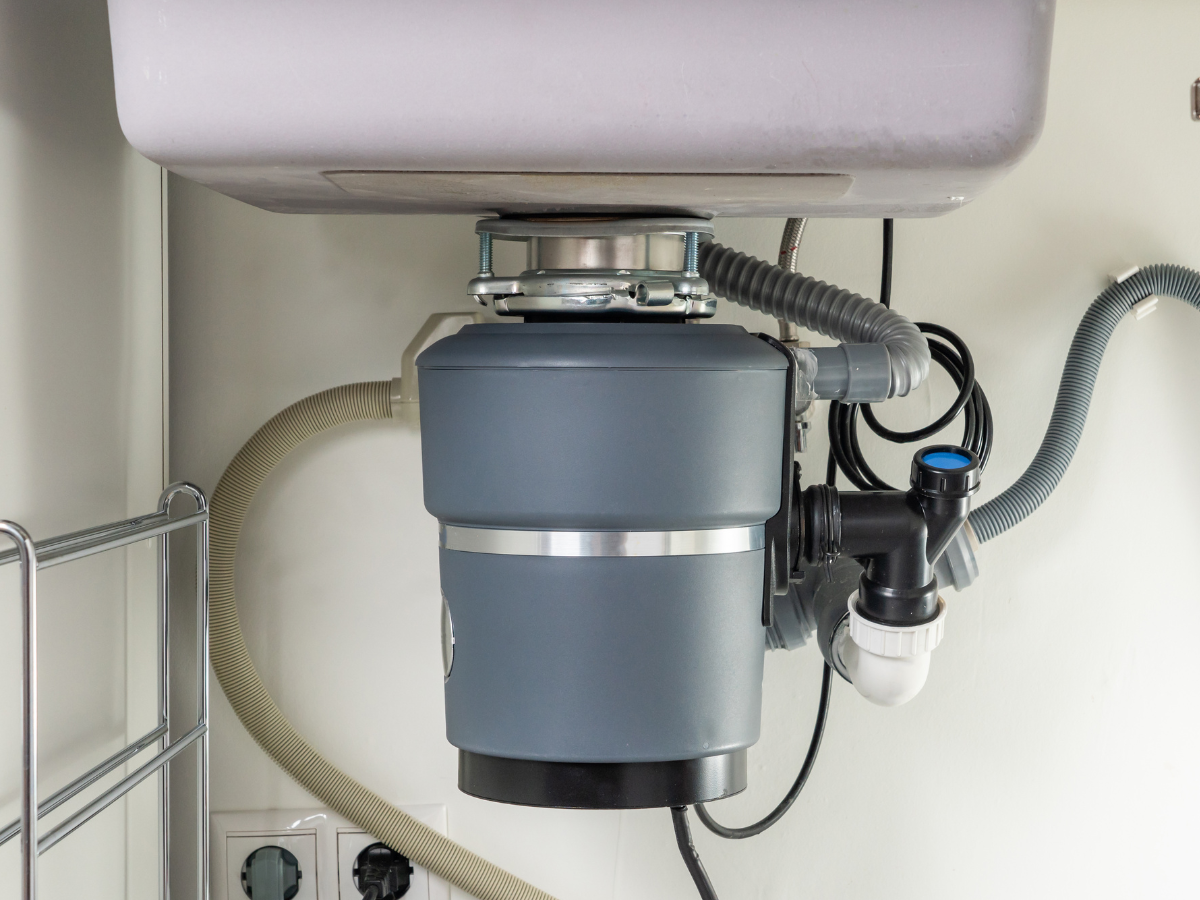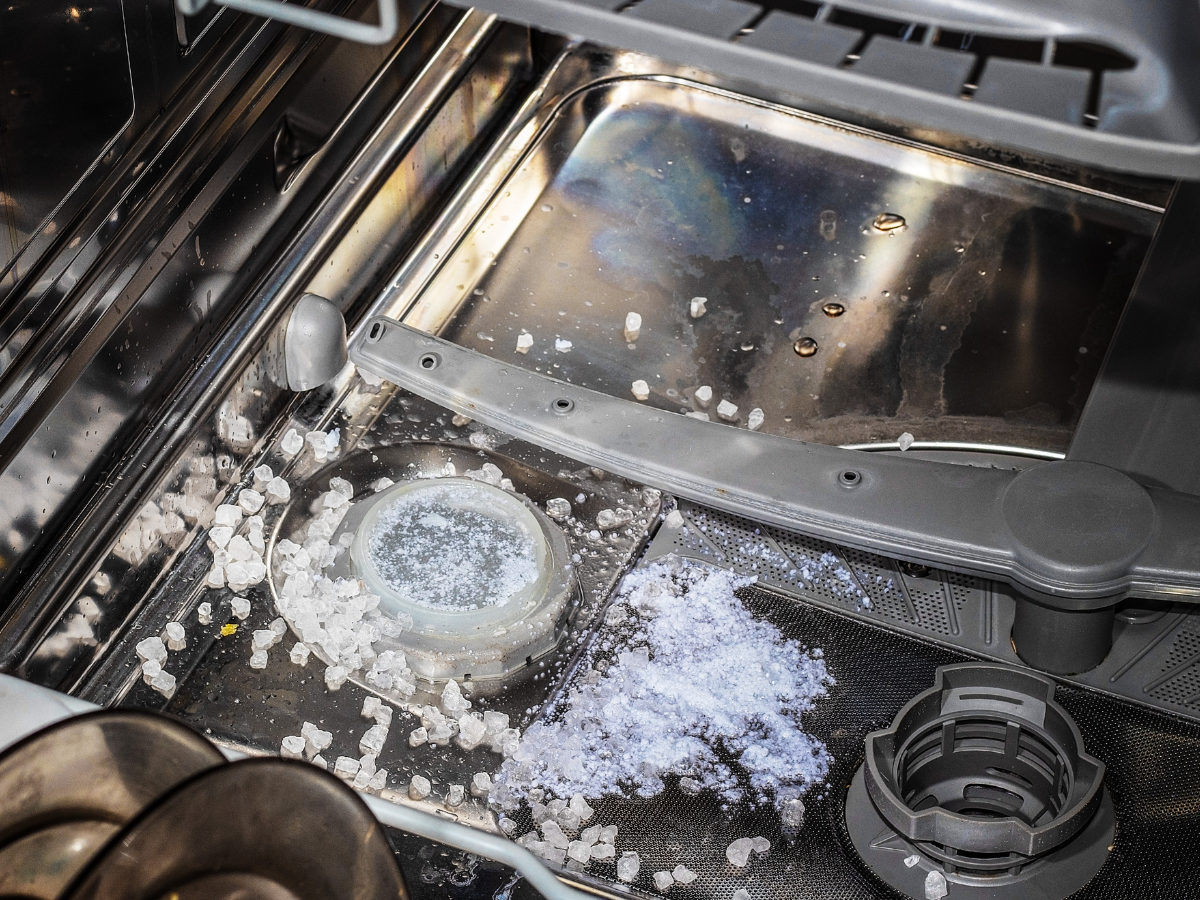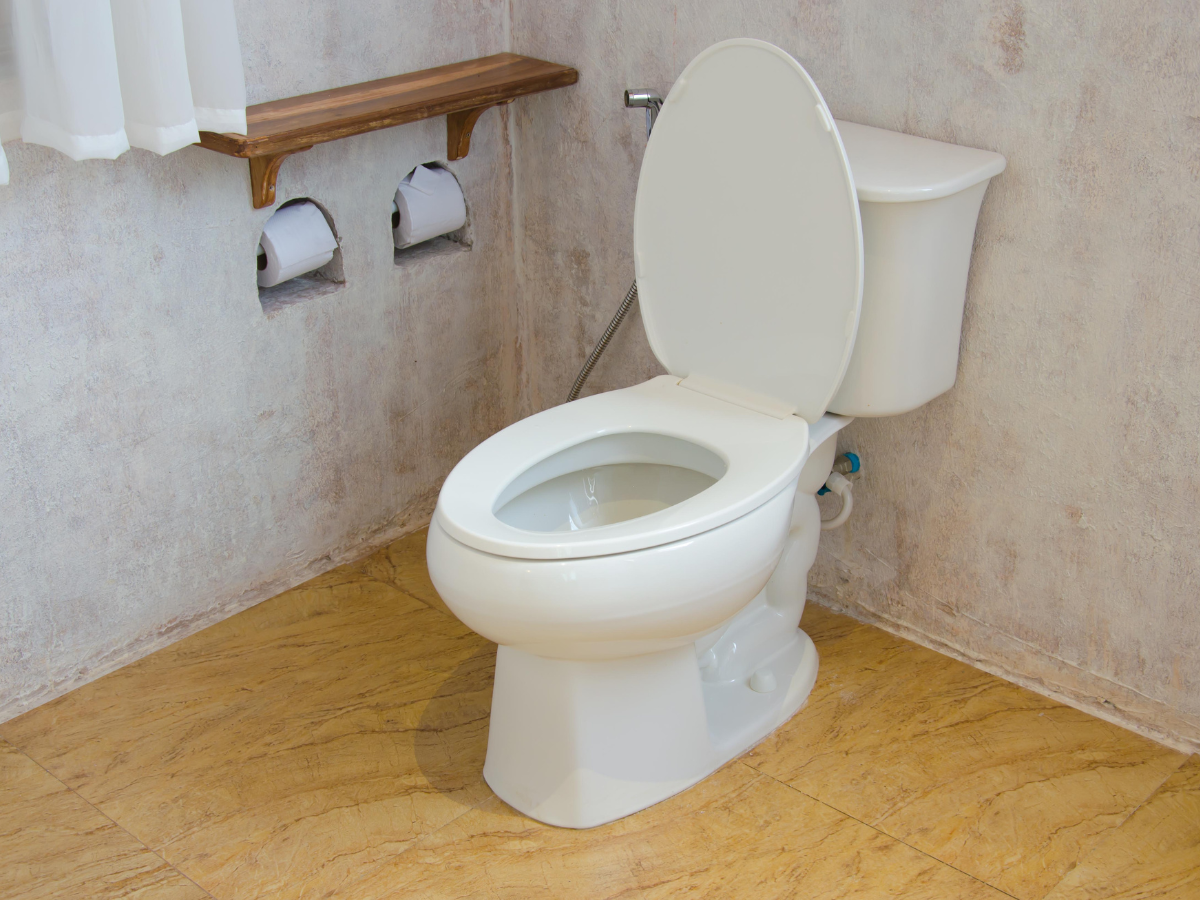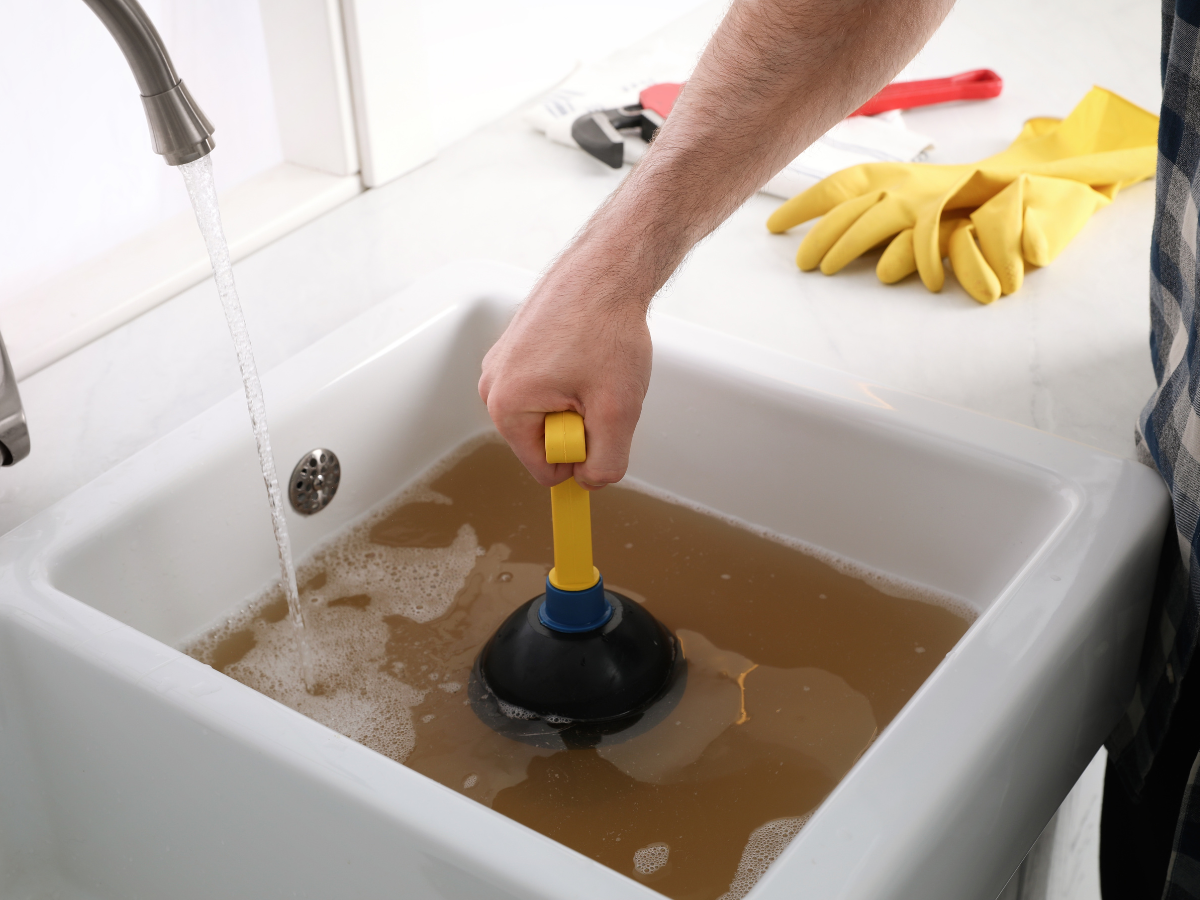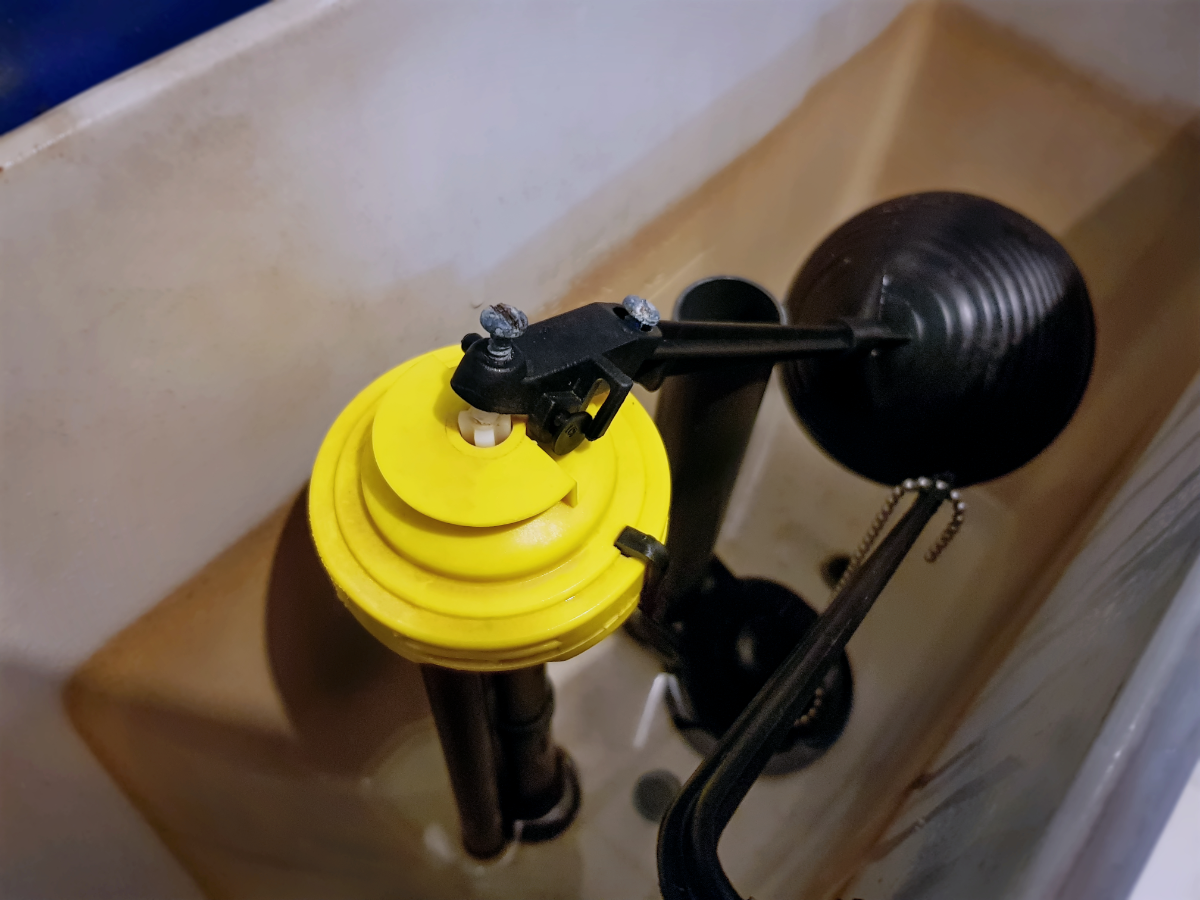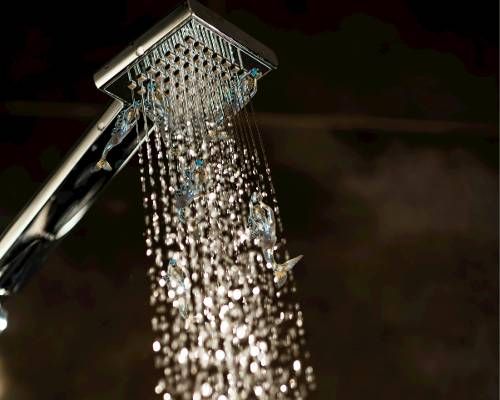What Can Go Down A Garbage Disposal?
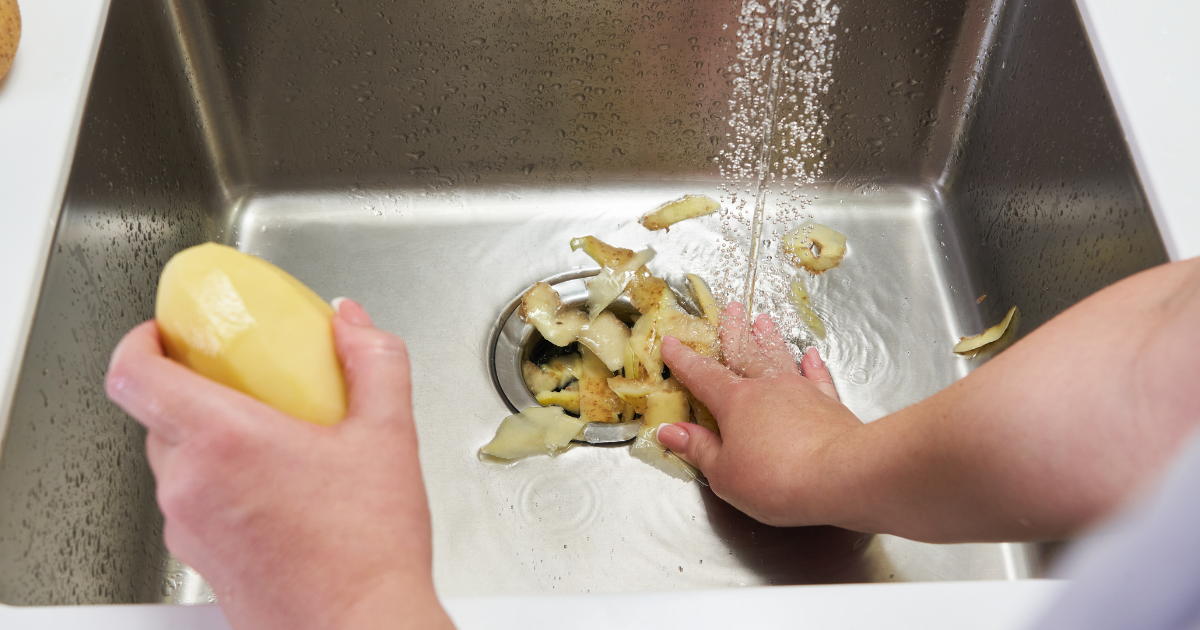
If you’ve ever found yourself standing in your kitchen, questioning whether it’s okay to put that leftover food down your garbage disposal, you’re not alone. It’s a common query that often leaves homeowners second-guessing.
Today’s blog aims to clear the confusion by discussing what can and can’t go into your garbage disposal. We’ll delve into the kinds of waste that could cause a clog and tips on how to keep your kitchen plumbing running smoothly.
So, let’s dive right in!
Why Should You Use a Garbage Disposal to Reduce Your Food Waste?
Reducing food waste is a pressing concern for homeowners in the United States. Not only does it contribute to environmental sustainability, but it can also protect the functionality of your kitchen equipment.
Garbage disposals serve as an essential tool in managing food waste efficiently. They grind soft food waste down to a size that can easily pass through plumbing, preventing potential damage to your drain pipes caused by blockage.
Yet, it’s crucial to remember that these devices can’t handle every type of waste – some items are better suited for trash bins or compost piles. Non-fibrous food scraps like vegetable peels, fruit skins, and coffee grounds can be the foundation of nutrient-rich compost for your garden.
By understanding the need and value of effective waste management, homeowners can make the most of their garbage disposal, prolong its lifespan, and contribute to a greener planet.
3 Items You Can Put in Your Garbage Disposal
Have you ever wondered what you can put down your garbage disposal after cooking for dinner? Here’s a quick list of items that your disposal can handle with ease:
Soft Food Waste
This is the waste your garbage disposal is made to handle. Leftovers like pasta, rice, and bread are good examples. Soft food waste is easily broken down and won’t cause any harm to your disposal unit. But remember, always run cold water while the disposal is in operation to help the process.
Non-Fibrous Vegetables
Not all vegetables are created equal when it comes to your garbage disposal. Non-fibrous vegetables such as lettuce, cucumbers, tomatoes, and zucchini are safe to put down. Items like orange, lemon, and other citrus peels can go down a garbage disposal smoothly. They’re soft enough to be ground down efficiently.
However, avoid hard, fibrous, or starchy veggies like celery, corn husks, or potatoes, as grinding them up can cause a clog.
Liquids
Most liquids are okay to pour down your garbage disposal. They can actually help in cleaning the unit, especially when used with a little dish soap. However, avoid pouring grease or oil down the disposal (or your sink) as they can solidify and cause blockages over time.
By following these guidelines, you can ensure the longevity of your garbage disposal and keep your kitchen plumbing running smoothly.
3 Items That You Should Never Put in Your Garbage Disposal
Even though garbage disposals can break down a number of different types of food waste, they aren’t built to dispose of everything. We suggest that you never put the following items down your disposal unit:
Fibrous Fruits and Vegetables
Certain fruits and vegetables like rhubarb, celery, corn husks, onion skins, artichokes, and pineapple tops have tough, fibrous textures. These can tangle around the garbage disposal blade, leading to blockages and potential malfunctions. They are best disposed of in your regular trash or compost bin.
Bones
Whether it’s chicken bones or fish bones, they are a big no for your disposal unit. Their hardness can dull the blades, leading to inefficient operation. Moreover, they can become lodged in the mechanism, leading to serious damage. It’s advised to dispose of bones in your regular trash.
Non-Food Waste
Garbage disposals are designed to handle food waste only. Homeowners should never put non-food items such as debris, dirt, paper, plastic, metal, cigarette butts, or cloth should never be put into a garbage disposal. These materials can dull or damage the blades and potentially lead to costly repairs.
By avoiding these items in your garbage disposal, you can prevent unnecessary clogs and maintain the efficiency of your unit. Remember, when in doubt, it’s better to toss it out!
What Happens If You Use Your Garbage Disposal Incorrectly?
Mishandling your garbage disposal can result in a series of unfortunate events, some of which include:
- Clogs and Blockages: Incorrect use, such as disposing of unsuitable items, can lead to clogs in your plumbing system, hampering the water flow, causing potential backups, and producing an unwanted odor.
- Damage to Blades and Motor: Hard and fibrous materials can dull the blades, reducing the efficiency of your disposal unit. In some cases, these items can become wedged in the motor, leading to serious damage and costly repairs.
- Environmental Impact: Inefficient waste management not only affects your home but can also have severe environmental consequences. Clogged pipes can lead to sewage backups and leaks, introducing harmful contaminants into local waterways. By using your garbage disposal correctly, you not only ensure the longevity of your appliance but also contribute to ecological preservation.
Remember, when it comes to the welfare of your home and the environment, every little bit counts!
Who Can You Call To Fix Your Garbage Disposal?
When you encounter problems with your garbage disposal, it’s highly recommended to call on the expertise of professional plumbers, such as those at Full Speed Plumbing.
With a team of highly trained and experienced professionals, they provide a range of repair services, ensuring your garbage disposal functions optimally. Their experts have in-depth knowledge of garbage disposal systems, allowing them to identify and rectify problems swiftly and efficiently.
By engaging Full Speed Plumbing’s services, homeowners can avoid the risk of further damaging their equipment or causing injuries due to DIY repairs. Leave the hard work to the professionals and enjoy peace of mind knowing your garbage disposal is in expert, capable hands.
What Can Go Down A Garbage Disposal? – Conclusion
As you can see, proper care and usage of your garbage disposal can ensure its longevity and contribute to a safer, greener environment. This includes understanding what can and can’t go down your disposal, as well as knowing when it’s time to call in the experts.
Don’t let an error cause you unnecessary stress or compromise the safety of your home. Trust the knowledgeable team at Full Speed Plumbing to handle any issues swiftly and efficiently.
For more information about the logistics of garbage disposal care or to schedule a service call, visit our website or contact us directly. Remember, when it comes to your garbage disposal, it’s better to be safe than sorry. Choose Full Speed Plumbing, your partner in maintaining a smooth and functional home.

